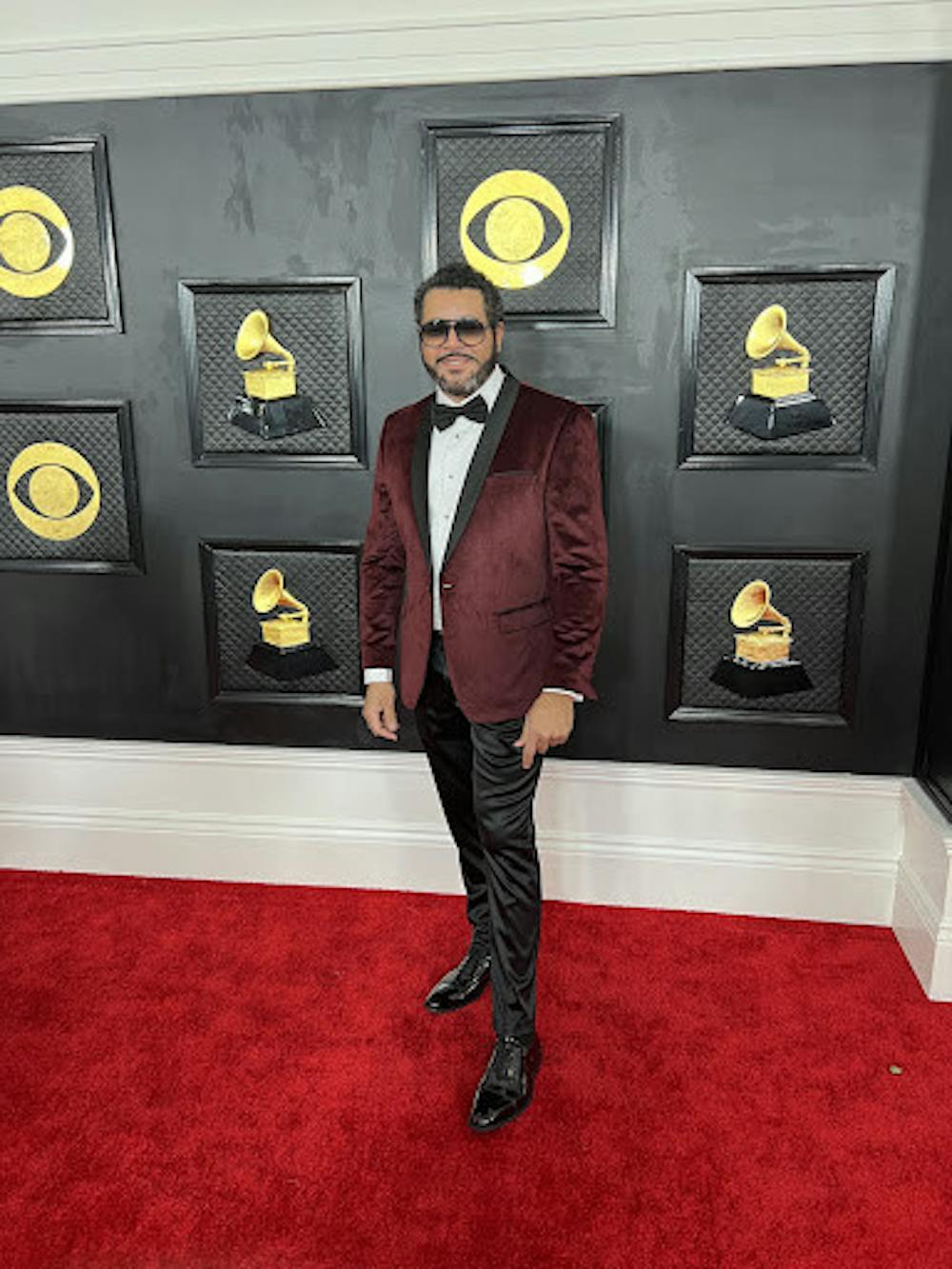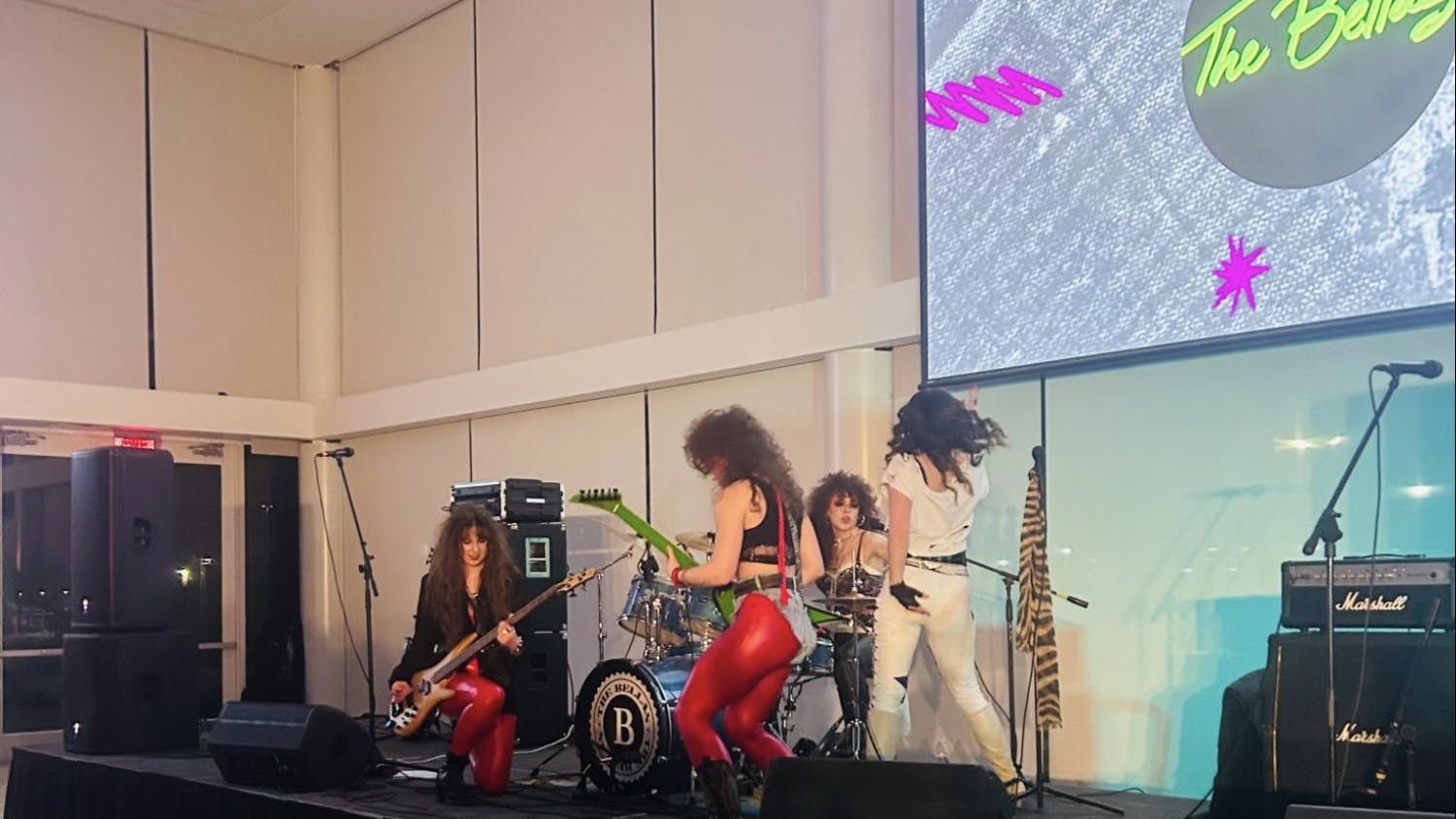By Rebecca Heath
News Editor
Long before adjunct professor and jazz music producer Doug Beavers even dreamed of earning a Grammy Award, the two-time winner and five-time nominee recalls cruising in his Hyundai to the University of California, Davis in 1997 with plans to pursue a degree in electrical engineering, when a song on the radio changed the trajectory of his life and career.
“John Coltrane came on and I got super emotional,” Beavers said via Zoom. “I'm like, ‘Man, I have to be a musician, I have to go for it.’ And so I turned the car around right there.”
The next day, Beavers switched gears and enrolled in California State University, East Bay, where he would subsequently spend three years cultivating his musical talents.
“I was just so happy, studying all the stuff, and just really diving into it,” he said.
After earning his bachelor of arts in music from the university in 2000, the West Coast native moved cross-country to pursue a master’s degree in composition at the Manhattan School of Music.
“At that point I've always had this interest in not just playing it, but the whole picture of the music, how to make it,” Beavers said.
Soon after hitting the road as a full-time musician post-graduation, Beavers joined forces with Latin music legend Eddie Palmieri, who discovered the up-and-coming trombonist while he was playing gigs across the Bay Area.
“Eddie Palmieri basically got me into what we call the major leagues of music,” Beavers said.
Though he was originally brought into Palmieri’s group to arrange and transcribe music created by his 1960s band La Perfecta that had been lost over the years, the Jazz Master one day asked Beavers to join his performance at historic San Francisco music venue The Fillmore, marking a new chapter in the rising star’s career.
“It was kind of like my homecoming,” he said. “You could [go to] graduate school, but it's the things you learn when it's showtime, the lights are on, you have to perform…that's the real experience, when the money's on the table, what are you gonna deliver? That was an education that you can't get anywhere, performing with one of the actual legends of the music is something that's irreplaceable.”
In 2005, Beavers collaborated with Palmieri on the jazz album “Listen Here,” which featured a number of prolific artists including Michael Brecker and Nicholas Payton, and marked his first Grammy win.
Five years later, Beavers began a stint with the Spanish Harlem Orchestra, which transformed into a 13-year-long career performing, composing and producing Grammy Award-winning salsa and jazz music.
During his early years with the group, Beavers spearheaded the development of the Harlem School of Urban Music, which was dedicated to teaching local high school students the ins and outs of recording, mixing, producing and songwriting.
“That was cool until I ran out of money, and then at that point I just wanted to focus on my solo career,” he said.
Beaver’s 2018 Grammy Award for Best Tropical Latin Album came only a year after he earned a nomination for his breakout solo album, “Art of the Arrangement” — an experience he described as “amazing.”
But just two years later, Beavers was forced to pivot his career after the onset of the Covid-19 pandemic. As the industry largely shut down, Beavers, who had been relying on local gigs as a source of income, began to seek stability.
In his search for sustainable opportunities to give back to the community, Beaver’s passion for music education drove him back to his roots. In 2021, he secured an adjunct teaching position at the College.
“I wanted to teach at a facility where I could get a rapport,” Beavers said. “I'm really happy to be here. I love the community; it reminds me of where I went to school in California.”
For Beavers, who recently embarked on his third year facilitating audio recording and production courses, the most rewarding part of the job is forming relationships and fostering growth in his students.
“I love each and every one of my students, and to give back and to see them grow and to see them be inspired,” he said. “To see them develop and get the skills, and flying around the studio and hooking up cables and opening tracks and recording, that's so rewarding.”
Aiming to expand his efforts of supporting and empowering fellow musicians, Beavers developed and launched Circle Nine amid the pandemic, a hybrid production company and record label that offers mixing, mastering, composition and arrangement services from a team of seasoned professionals.
“We’re actually able to build a community and get some amazing music produced, kind of with my vision,” he said. “We have 10 artists right now, and we have three records out and four due this year, so it's really growing by leaps and bounds….You go after your dreams, you work hard and it does come true.”







